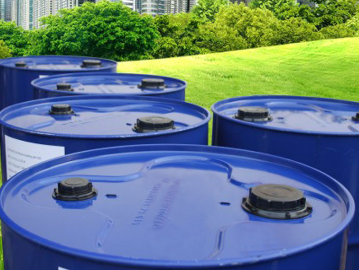
Polyether amines are a versatile class of chemicals that find applications in a multitude of industries including adhesives, coatings, lubricants, and fuel additives. Choosing the right polyether amine for your project is crucial to achieve the desired performance and compatibility with other components of the formulation. Here are some key factors to consider when selecting a polyether amine:
1. Molecular weight: Polyether amines come in a range of molecular weights, which can impact properties such as viscosity, flexibility, and curing time. Higher molecular weight polyether amines tend to provide greater toughness and flexibility, while lower molecular weight options offer faster curing times and lower viscosity. Consider the specific performance requirements of your project to determine the optimal molecular weight range.
2. Functionality: Polyether amines can have different numbers of amine and polyether groups per molecule, known as functionality. Higher functionality polyether amines have more reactive sites for crosslinking and can provide improved mechanical properties and chemical resistance. However, higher functionality may also lead to higher viscosity and longer curing times. Assess the balance between reactivity and formulation characteristics to select the appropriate functionality for your project.
3. Primary vs. secondary amines: Polyether amines can contain primary or secondary amine groups, each offering specific benefits in terms of reactivity and performance. Primary amines are more reactive and promote faster crosslinking, making them suitable for applications requiring rapid curing. Secondary amines, on the other hand, provide improved flexibility and durability, making them ideal for applications where mechanical properties are critical. Consider the desired balance between reactivity and performance when choosing between primary and secondary amine options.
4. Compatibility: Compatibility with other components of the formulation, such as resins, solvents, and additives, is essential to ensure the stability and performance of the final product. Evaluate the compatibility of polyether amines with other ingredients to prevent issues such as phase separation, flocculation, or reduced performance. Conduct compatibility tests and consult with the supplier to select a polyether amine that integrates seamlessly into your formulation.
5. Application requirements: The specific application requirements of your project, such as adhesion strength, chemical resistance, flexibility, and cure kinetics, will influence the selection of the most suitable polyether amine. Consider the performance characteristics needed for your application and choose a polyether amine that meets those requirements. Consult with technical experts and conduct trials to verify the performance of the selected polyether amine in real-world conditions.
6. Regulatory compliance: Ensure that the selected polyether amine complies with relevant regulations and standards for your industry, such as REACH, FDA, or other regional requirements. Verify the safety data sheet and technical documentation provided by the supplier to confirm regulatory compliance and assess any potential risks associated with the use of the polyether amine in your project.
By carefully evaluating these factors and conducting thorough testing, you can select the right polyether amine for your project to achieve optimal performance and compatibility with other components of the formulation. Collaborate with technical experts and suppliers to access the latest innovations and ensure the success of your project.